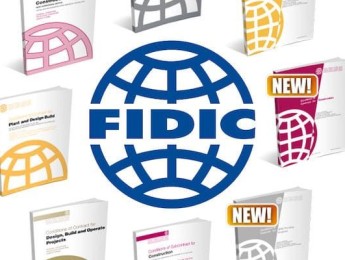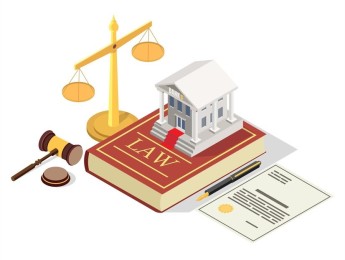Laws and legislation are ingrained into every part of society, and the business world is heavily regulated. All organisations must write and manage contracts in many different areas, including employment, stakeholders, procurement, and client matters. These contracts are necessary for business functions to be guaranteed to work effectively and can lead to various major problems.
To be competent at writing legal documentation, it is essential to understand the physical aspects of the contract, such as formatting, layouts, and the type of language used. For contracts to have a legal precedent, correct legal phrases must be used so the law can recognise exactly what may be transpiring. Legal documents must also be readable to all involved parties and utterly coherent in written language.
Legal documentation should also be clear and coherent. It must include a statement of the facts, an explanation of the issue, and the formal conclusion the parties wish to take. Contracts would be discussed with all parties to ensure a positive outcome. The final step before completion is for the contract writer to evaluate the document for any major risks or potential loopholes that may render it invalid.
Upon completion of this course, participants will be able to:
- Understand the importance of drafting and writing legal documentation within an organisation.
- Evaluate relevant laws and legislations and ensure all contracts are compliant with them.
- Assess the language used within the document to guarantee accessibility and accuracy.
- Correctly utilise correct writing techniques to increase document clarity.
- Identify key terms and conditions that must be included alongside relevant clauses or contingencies.
- Establish a standard model for documents and contracts to increase future productivity.
- Propose alternative drafts to desired personnel to protect the client’s commercial interests.
This course is designed for anyone responsible for writing or managing contracts within an organisation. It would be most beneficial for:
- Recruitment Officers
- Legal Advisors
- Solicitors
- Contracts Managers
- Operations Managers
- Senior Executives
- Business Owners
- HR Personnel
This course uses a variety of adult learning styles to aid full understanding and comprehension. Participants will review real-world examples of contracts from various businesses and industries to highlight key features, clauses, and structural factors.
Through a combination of various learning methods, including seminars, group discussions, case studies, and individual activities, the participants fully develop their knowledge and skills related to the taught content. Furthermore, the practical activities enable the participants to demonstrate their knowledge and receive constructive instructor and peer feedback.
Day 5 of each course is reserved for a Q&A session, which may occur off-site. For 10-day courses, this also applies to day 10
Section 1: Fundamentals of Legal Documentation
- The vitality of legal documentation within an organisation.
- Common types of contracts, their primary purpose, their advantages and disadvantages.
- How legal documents protect and benefit different involved parties.
- Identifying what features are necessary within a legal contract.
- Reviewing regional laws and regulations to ensure all documents are compliant.
Section 2: Creating a Legal Memorandum
- Investigating different writing formats and layouts to increase document readability.
- Accurately explain the issue and define the purpose of the memorandum.
- Establishing the legal matter, the short answer, and a statement of facts.
- Deeply analysing the matter concerning the identified law and how the matter may be resolved.
- Providing an appropriate course of action that is suitable for all involved parties.
Section 3: Principles of Contract Drafting
- Explaining why creating drafts of legal contracts is vital.
- Utilising existing contract models as a reference and later developing a personal contract style.
- Ideal writing techniques and methods to use when drafting contracts.
- Adjusting methodologies depending on the specific issue and related parties.
- Providing accessible copies of contracts when necessary.
- How language evolves from contract to contract – Deeds, purchase orders, framework agreements and letters of intent.
Section 4: Preparing the Draft
- Reflecting on the contract's purpose to guarantee a full and comprehensive understanding of the issue.
- Creating a plan detailing the key matters, facts, and resolutions.
- Structuring the contract to convey the message best.
- Identify what information must be included at the beginning of the contract – Title, parties, dates, signatures, and attachments.
Section 5: Managing the Contract Until Agreement
- Communicating regularly and effectively with all parties to maintain satisfaction with the process.
- Analysing the completed draft and searching for any major risks or loopholes.
- Examining the concept of ‘reasonableness’ and when it may be appropriate.
- Reviewing the process of negotiating various clauses – Risk bearers, bonds, limitation of liability and penalties.
Upon successful completion of this training course, delegates will be awarded a Holistique Training Certificate of Completion. For those who attend and complete the online training course, a Holistique Training e-Certificate will be provided.
Holistique Training Certificates are accredited by the British Assessment Council (BAC) and The CPD Certification Service (CPD), and are certified under ISO 9001, ISO 21001, and ISO 29993 standards.
CPD credits for this course are granted by our Certificates and will be reflected on the Holistique Training Certificate of Completion. In accordance with the standards of The CPD Certification Service, one CPD credit is awarded per hour of course attendance. A maximum of 50 CPD credits can be claimed for any single course we currently offer.
- Course Code PO5-109
- Course Format Classroom, Online,
- Duration 5 days














